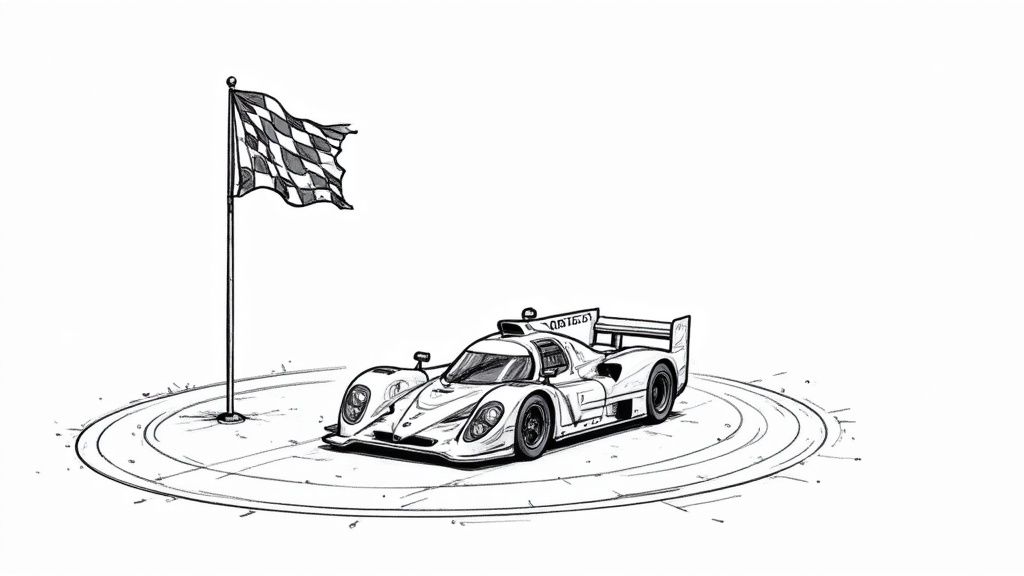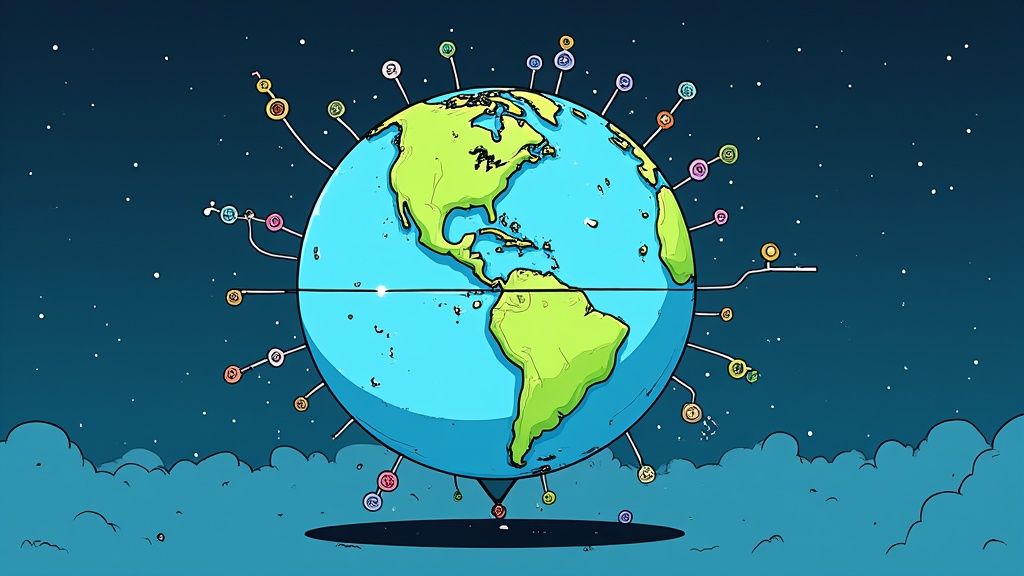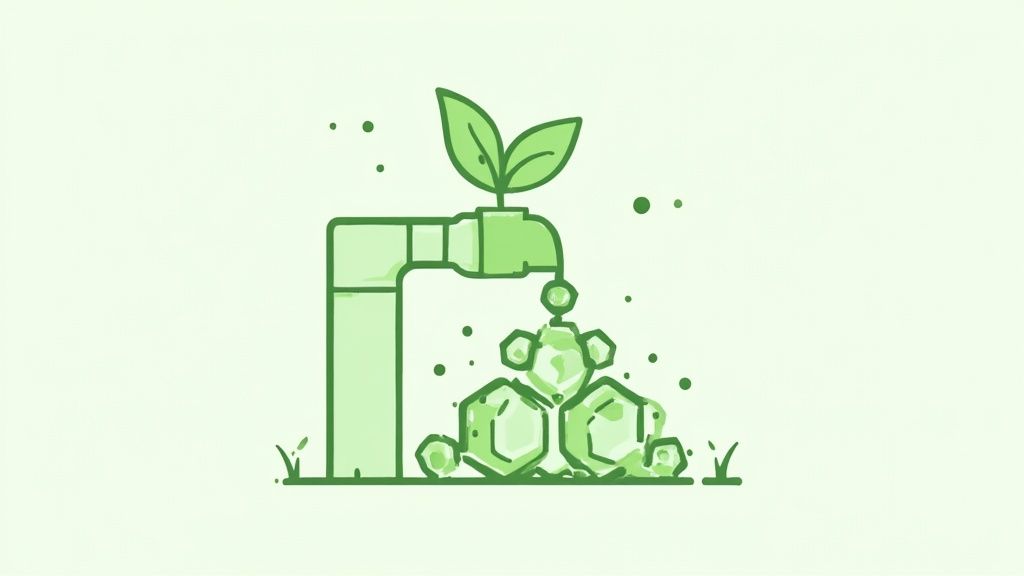Ready to Win Big? These Competitions Are Closing Soon!
Want to win prizes, boost your skills, and gain recognition? This list of 6 competitions ending soon offers opportunities in AI, space exploration, and more. Don’t miss your chance to make a mark – deadlines are fast approaching! Find the perfect competition for you, from data science challenges like the Kaggle Titanic competition to global initiatives like the XPRIZE Carbon Removal. Enter now before it’s too late!
1. Kaggle: Titanic – Machine Learning from Disaster
The “Titanic – Machine Learning from Disaster” competition on Kaggle is a legendary challenge, especially for those dipping their toes into the world of data science and machine learning. This competition, ending soon, offers a compelling way to learn and apply machine learning principles using a readily accessible and historically significant dataset. Participants are tasked with predicting which passengers survived the tragic sinking of the Titanic based on various features like age, gender, passenger class, and more. This binary classification problem provides a tangible and engaging introduction to core machine learning concepts.

This competition deserves its place on the “competitions ending soon” list because it presents a unique opportunity, particularly for newcomers to the field. The relatively small dataset (891 training samples) coupled with a beginner-friendly structure makes it approachable even for those with limited experience. The Titanic competition enjoys an active discussion forum and offers both public and private leaderboards, providing a dynamic and engaging learning environment. Furthermore, it serves as a great stepping stone to more advanced machine learning competitions.
The Titanic competition uses a readily understandable binary classification problem, making it easy to grasp the fundamental goals of machine learning prediction. The historical dataset adds an element of real-world context, enhancing engagement and understanding. This beginner-friendly nature is a major draw, fostering a sense of accessibility for aspiring data scientists.
Pros:
- Perfect for beginners: The small dataset and clear problem statement allow newcomers to quickly get up to speed.
- Excellent learning resources: Abundant tutorials, kernels, and discussions on Kaggle and other platforms offer invaluable guidance.
- Active community support: The large and active Kaggle community readily provides assistance and feedback.
- Good introduction to feature engineering: The competition encourages exploration of feature engineering techniques, a crucial skill in machine learning.
- Low barrier to entry: The simplicity of the problem and readily available data minimize the technical hurdles to participation.
Cons:
- Very common competition so highly competitive: The popularity of the competition means the leaderboard is often densely packed.
- Limited dataset size: The small dataset can restrict the complexity of models and the potential for achieving very high accuracy.
- Might be too simple for experienced data scientists: Seasoned practitioners might find the competition less challenging.
Examples of Successful Implementations:
Top solutions typically achieve accuracy scores around 85%. These successful approaches often involve clever feature engineering, such as creating features representing family size or extracting titles from passenger names. Combining multiple models through ensemble methods is also a common strategy amongst top performers.
Tips for Success:
- Focus on feature engineering: Creating features like family size or extracting titles from names can significantly improve model performance.
- Handle missing values carefully: Imputing missing values effectively is crucial for optimal model training.
- Try ensemble methods: Combining predictions from multiple models can enhance overall accuracy.
- Extract titles from passenger names: Titles (e.g., Mr., Mrs., Miss) can provide insights into social status and survival probability.
Popularized By:
The Titanic competition has been popularized by Kaggle itself, the broader data science community, and numerous machine learning bootcamps. It serves as a staple introductory project for aspiring data scientists worldwide.
Link to Competition (replace with actual link)
2. AWS DeepRacer Student League
The AWS DeepRacer Student League is a unique opportunity among competitions ending soon, offering students a thrilling introduction to the world of artificial intelligence and autonomous racing. This global competition challenges students to train reinforcement learning (RL) models to navigate 1/18th scale autonomous race cars around a virtual track. The best part? You don’t need any specialized hardware to participate. You program your virtual car within a simulated environment, honing your RL skills and competing against other students worldwide. This practical experience can even translate into real-world applications, with the potential to deploy your trained models onto physical AWS DeepRacer cars.

The competition utilizes monthly qualifying rounds, culminating in exciting finals where top performers have the chance to race their models physically. The AWS DeepRacer Student League is specifically designed for students with valid academic credentials. It provides a fantastic platform to learn practical reinforcement learning, a key skill in today’s tech landscape. This focus on a cutting-edge technology sets it apart from other competitions ending soon, making it ideal for those seeking to expand their skill set and potentially boost their career prospects.
Examples of Success: Previous winners haven’t just earned bragging rights; they’ve also secured internships at AWS, demonstrating the potential career benefits of participating. Top-performing models have achieved impressive lap times under 10 seconds on standard tracks, showcasing the power and precision achievable with well-trained RL models.
Tips for Success:
- Start Simple: Begin with the basic reward function and iterate upon it, gradually refining your model’s performance.
- Efficient Training: Use your training time wisely by creating logical experiments and analyzing the results.
- Track Knowledge: Study the virtual track layout before designing your reward function. Understanding the track’s nuances will help you create a more effective strategy.
- Community Power: Join the DeepRacer community online. It’s a valuable resource for tips, tricks, and support from fellow racers. Learn more about AWS DeepRacer Student League for further insights on maximizing your chances.
Pros:
- Free for students
- Practical reinforcement learning experience
- No specialized hardware required
- AWS credits provided to participants
- Potential for physical racing in the finals
Cons:
- Steep learning curve for RL beginners
- Requires a significant time investment
- Limited to students with valid academic credentials
This competition deserves its place on the “competitions ending soon” list due to its unique blend of exciting competition, valuable learning opportunities, and potential career benefits. It’s not just about winning a race; it’s about gaining practical skills in a rapidly evolving field. If you’re a student in the UK looking to explore the world of AI and autonomous racing, the AWS DeepRacer Student League is a competition you won’t want to miss.
3. Google AI Impact Challenge
The Google AI Impact Challenge, a competition ending soon, presents a remarkable opportunity for organisations to make a real difference in the world. This initiative seeks projects that leverage the power of artificial intelligence to address pressing societal challenges. If your organisation is working towards humanitarian, environmental, or social good, and you have an innovative idea for applying AI, this challenge deserves your attention. It offers substantial grant funding for winning proposals, giving your project the boost it needs to achieve significant impact.
This challenge is more than just a funding opportunity; it’s a chance to collaborate with Google and tap into their extensive resources and mentorship. Google provides technical and strategic guidance to successful applicants, helping them refine their projects and maximise their potential. This support, combined with the prestige of winning a Google-backed initiative, can significantly elevate the visibility of your organisation within the UK and globally.
How it works: Organisations submit proposals detailing their AI-driven solutions for specific societal challenges. A panel of experts reviews the submissions based on criteria such as impact, feasibility, and scalability. Winning organisations receive substantial grants (ranging from $500,000 to $2 million per project) as well as access to Google’s resources and mentorship.
Examples of successful implementation: Previous winners of the Google AI Impact Challenge have demonstrated the transformative potential of AI across diverse sectors. These include:
- Rainforest conservation monitoring: AI-powered systems are being used to analyse satellite imagery and acoustic data to detect illegal logging and poaching activities, helping protect vital ecosystems.
- Flood prediction systems in developing countries: AI algorithms are analysing weather patterns and geographical data to provide early warnings of floods, enabling communities to prepare and mitigate the impact of these natural disasters.
- AI for accessibility solutions: Innovative projects are utilising AI to create tools and technologies that improve the lives of people with disabilities, from assistive communication devices to accessible navigation systems.
Tips for applying: The Google AI Impact Challenge is highly competitive, so a strong application is crucial. Here are some key tips to increase your chances of success:
- Focus on quantifiable impact: Clearly demonstrate how your project will make a measurable difference, using data and metrics to support your claims.
- Demonstrate technical feasibility: Provide a detailed plan outlining the technical aspects of your AI solution and ensure you have the expertise to execute it.
- Build interdisciplinary teams: Combine technical AI expertise with knowledge of the nonprofit/social sector to create a well-rounded and effective team.
- Create clear implementation timelines: Outline a realistic timeline for project implementation, including key milestones and deliverables.
- Show scalability potential: Explain how your solution can be scaled up to reach a wider audience and achieve greater impact.
Pros:
- Significant funding ($500K-$2M per project)
- Google mentorship and resources
- Potential for real-world implementation
- Visibility for winning organisations
Cons:
- Extremely competitive
- Requires both technical AI expertise and nonprofit/social sector knowledge
- Complex application process
- Limited to organizations (not individuals)
Why this competition deserves a place on the list of “competitions ending soon”: The Google AI Impact Challenge offers a rare combination of significant funding, expert support, and global recognition. For organisations seeking to leverage AI for social good, this is an invaluable opportunity that shouldn’t be missed. While the competition is challenging, the potential rewards are substantial, making it a worthwhile endeavour for those with innovative ideas and a commitment to positive change. This is particularly relevant for UK organisations looking to make a global impact.
(Unfortunately, a direct link to the Google AI Impact Challenge website isn’t readily available as the programme runs in cycles. Searching “Google AI Impact Challenge” will lead you to the most current information.)
This competition is highly relevant for tech and gadget fans interested in the real-world application of AI, prize seekers looking for substantial funding opportunities, and social media followers interested in innovative social impact projects. The potential for real-world change and the prestige associated with Google make this a compelling competition for various audiences.
4. NASA SpaceApps Challenge
For tech enthusiasts, space geeks, and anyone looking for a challenging but rewarding competition ending soon, the NASA SpaceApps Challenge is an incredible opportunity. This global hackathon, occurring over an intense 48-hour period, calls upon participants to use NASA’s open data to develop innovative solutions to real-world problems on Earth and in space. From tackling climate change to advancing space exploration technology, the possibilities are vast. The competition’s global reach spans over 150 countries, with both virtual and in-person participation options, making it accessible to a wide range of competitors right here in the UK and beyond.

The SpaceApps Challenge offers a unique platform for participants to dive into NASA’s extensive data resources and contribute to meaningful projects. Multiple challenge categories cater to diverse skill sets and interests, whether your passion lies in coding, design, or scientific research. The competitive nature of the event, coupled with the limited 48-hour timeframe, pushes teams to collaborate effectively and produce innovative solutions under pressure.
The benefits of participating are numerous. Think access to NASA’s data and expertise, global networking opportunities, and the potential for your project to continue development with NASA after the event. Winning teams gain prestigious recognition within the tech and space communities. And a major plus – there’s no entry fee!
Past SpaceApps Challenges have seen the creation of impressive projects, including wildfire tracking systems, air quality monitoring applications, and space debris visualization tools. Imagine being part of a team that develops the next groundbreaking solution!
However, be aware of the cons. The extremely short 48-hour timeframe requires intense dedication and efficient teamwork. Assembling a diverse team with technical, design, and relevant domain expertise is crucial for success. Familiarizing yourself with the challenges and data beforehand is highly recommended, as navigating the resources can be technically challenging during the event itself. Focus on creating a working prototype rather than just a concept, and consider user experience and implementation feasibility from the outset.
This competition deserves its place on this list of competitions ending soon due to its unique combination of challenging problem-solving, access to cutting-edge resources, and potential for global impact. It’s perfect for UK-based online gaming enthusiasts, prize seekers, tech and gadget fans, and anyone looking for a competitive challenge within a thriving community. If this sounds like your cup of tea, form your team and get ready to launch your innovative ideas into the stratosphere!
Tips for Success:
- Form a diverse team with technical, design, and domain expertise.
- Review the challenges and data before the event.
- Create a working prototype, not just a concept.
- Consider user experience and implementation feasibility.
Learn more about NASA SpaceApps Challenge and other exciting opportunities.
5. Facebook AI Image Similarity Challenge
For tech enthusiasts and coding wizards in the UK looking for competitions ending soon, the Facebook AI Image Similarity Challenge presents a thrilling opportunity. This competition, popularised by Meta AI Research and the computer vision research community, focuses on developing cutting-edge algorithms to identify near-duplicate images with exceptional accuracy and speed. This challenge directly addresses a critical real-world problem: detecting manipulated or copied images across massive platforms. Think about the implications for copyright protection and preventing the spread of misinformation – this competition is at the forefront of tackling these issues. Learn more about Facebook AI Image Similarity Challenge
The challenge is structured around two separate tracks: matching and descriptor. The matching track focuses on identifying the most similar images within a massive dataset, while the descriptor track tasks participants with creating compact image representations that capture essential visual information for efficient similarity comparisons. Both tracks emphasise not just accuracy, but also computational efficiency, reflecting the demands of real-world deployment in large-scale systems.
This competition deserves a spot on this list of “competitions ending soon” because of its unique blend of real-world impact and technical challenge. Participants gain access to a large-scale, unique image dataset provided by Meta, offering valuable experience with data at a scale rarely encountered elsewhere. Furthermore, strong performance can lead to potential recruitment opportunities with Meta, a significant draw for aspiring computer vision professionals.
Features and Benefits:
- Large-scale image dataset: Provides real-world training data and a challenging benchmark.
- Focus on computational efficiency: Encourages the development of practically applicable solutions.
- Both accuracy and speed evaluated: Reflects the importance of balanced performance in real-world applications.
- Real-world application context: Addresses the pressing need for robust image similarity detection.
- Two separate tracks (matching and descriptor): Allows participants to specialise and explore different approaches.
Pros:
- Direct industry application potential.
- Access to unique datasets.
- Potential recruitment opportunity with Meta.
- Cutting-edge computer vision challenge.
Cons:
- Computationally intensive, potentially requiring significant resources.
- Requires specialized hardware for competitive entries.
- Complex evaluation metrics require in-depth understanding.
- High expertise barrier, best suited for experienced programmers and computer vision enthusiasts.
Examples of Successful Implementations:
Previous solutions have demonstrated remarkable advancements, with some improving image matching accuracy by up to 20%. Winning approaches have even been implemented in production systems, highlighting the real-world impact of this competition.
Tips for Success:
- Balance precision and computational efficiency: Don’t solely focus on accuracy; optimize for speed as well.
- Consider transformer-based architectures: Explore these powerful architectures for image representation.
- Optimize for both accuracy and inference speed: Consider techniques like quantization and pruning.
- Use ensemble techniques strategically: Combine multiple models to boost overall performance.
This is a high-stakes competition for serious competitors. While computationally demanding and requiring a high level of expertise, the Facebook AI Image Similarity Challenge offers invaluable experience, potential career advancement, and the chance to contribute to a vital area of computer vision research. So, if you’re a UK-based tech enthusiast, prize seeker, or gadget fan with the skills and dedication, this competition might be just the challenge you’re looking for. Remember, it’s ending soon, so don’t miss out!
6. XPRIZE Carbon Removal
The XPRIZE Carbon Removal is a competition ending soon (its current milestone phase, at least) with a massive $100 million prize purse, funded by Elon Musk. Its aim? To find and support scalable solutions that can permanently remove carbon dioxide from the atmosphere and combat climate change. Teams from around the globe are developing innovative technologies across various approaches, including direct air capture, enhanced mineralization, ocean-based removal, and biomass-based carbon sequestration. This isn’t just a theoretical exercise; the competition demands real-world implementation and demonstrable results.

This competition deserves a spot on the “competitions ending soon” list because the current milestone phase concludes in the near future. While the overall competition runs until 2025, achieving milestones is crucial for teams to secure interim funding and remain competitive. This creates a sense of urgency and excitement for those following the progress of these potentially world-changing technologies.
The multi-year structure (2021-2025) allows for iterative development and rigorous testing of proposed solutions. Features include milestone prizes leading up to the final awards, a focus on scalability to gigaton levels of carbon removal, and the requirement for demonstrated permanence of carbon storage.
Examples of approaches being pursued:
- Direct Air Capture (DAC): These technologies pull CO2 directly from the ambient air. Several leading contenders are using innovative chemical processes to achieve this.
- Enhanced Weathering: This involves accelerating natural rock weathering processes to capture and store atmospheric CO2.
- Biomass-based Carbon Sequestration: These methods utilise plant matter to absorb CO2, which is then stored in various ways, including biochar production.
Pros:
- Unprecedented Funding: The $100 million prize pool is the largest ever offered for carbon removal technology.
- Global Visibility: Participating teams gain significant exposure and recognition for their work.
- World-Changing Potential: Successful solutions could significantly impact the fight against climate change.
- Expert Support: Teams receive support from leading climate scientists and engineers.
Cons:
- High Technical Bar: Developing effective and scalable carbon removal technologies is extremely challenging.
- Resource Intensive: Competing effectively requires substantial financial and human resources.
- Long-term Commitment: The competition’s multi-year timeframe necessitates sustained dedication.
- Scale-up Challenge: Demonstrating effectiveness at gigaton scale is a significant hurdle.
Tips for Aspiring Competitors (or those just interested in the field):
- Scalability is Key: Focus on solutions capable of removing gigatons of CO2 annually.
- Consider Lifecycle Costs: Evaluate the full economic and environmental costs of your approach.
- Permanence Matters: Ensure that captured carbon is stored securely and permanently.
- Interdisciplinary Teams: Build teams with expertise in science, engineering, and business.
Why This Matters to UK Readers: Climate change is a global challenge, and the UK is actively seeking innovative solutions to reduce its carbon footprint. The XPRIZE Carbon Removal offers a potential pathway to achieving ambitious climate goals and could position the UK as a leader in carbon removal technology.
While the final prize won’t be awarded until 2025, keeping an eye on the milestones and the progress of these exciting technologies is highly relevant for anyone interested in the fight against climate change. More information can be found on the XPRIZE website (add link to XPRIZE website here). This competition isn’t just about winning a prize; it’s about developing crucial technologies for a sustainable future.
Upcoming Competition Comparison
| Competition | Implementation Complexity 🔄 | Resource Requirements ⚡ | Expected Outcomes 📊 | Ideal Use Cases 💡 | Key Advantages ⭐ |
|---|---|---|---|---|---|
| Kaggle: Titanic | Low – beginner-friendly with small dataset | Low – standard computing resources | ~85% accuracy classification model | Introductory ML, feature engineering | Excellent learning resources, active community |
| AWS DeepRacer Student League | Medium – reinforcement learning with simulation | Medium – no hardware needed, but time-intensive | Autonomous driving RL models with lap time improvements | Students learning RL, hands-on experience | Free for students, AWS credits, internship potential |
| Google AI Impact Challenge | High – requires AI + social sector expertise | High – team and project resources | Funded AI projects with real-world societal impact | Nonprofits, academics tackling social good | Large funding, Google mentorship, implementation support |
| NASA SpaceApps Challenge | Medium – 48-hour hackathon, multidisciplinary teams | Medium – team with diverse skills, NASA resources | Rapid prototypes addressing Earth/space challenges | Hackathons, rapid innovation | Access to NASA data, global networking, no cost |
| Facebook AI Image Similarity Challenge | High – cutting-edge CV with efficiency and scale focus | High – specialized hardware/software | Industry-grade image similarity algorithms | Computer vision, industry applications | Industry impact, recruitment, unique datasets |
| XPRIZE Carbon Removal | Very High – multi-year, scalable tech development | Very High – significant funding & resources | Demonstrated scalable carbon removal technologies | Climate tech, scalable emissions reduction | Unprecedented funding, global impact, expert support |
Don’t Wait, Enter Now!
From data science and AI to space exploration and environmental innovation, the competitions ending soon highlighted in this article offer a diverse range of opportunities. Whether you’re a seasoned competitor or just starting out, taking part in challenges like the Kaggle Titanic competition, the AWS DeepRacer Student League, or even the XPRIZE Carbon Removal provides invaluable experience. These competitions aren’t just about winning; they’re a chance to hone your skills, learn from others, and potentially contribute to groundbreaking advancements. Remember, the clock is ticking on these incredible opportunities – so don’t miss out!
Taking on a challenge like the NASA SpaceApps Challenge or the Facebook AI Image Similarity Challenge requires dedication and a willingness to learn. Keen to boost your skills before diving in? Want to explore more learning opportunities? Check out these top online learning platforms from Tevello for inspiration and resources. Mastering the skills required for these competitions can open doors to exciting new career paths and personal growth, connecting you with a global community of innovators.
Seize the chance to push your boundaries and make a real impact. Choose a competition that sparks your interest and submit your entry today. Want to stay ahead of the curve and discover even more competitions ending soon? Visit Lucky Turbo Competitions to find a curated list of exciting opportunities and boost your chances of winning. Don’t delay, your next big win could be just around the corner!
